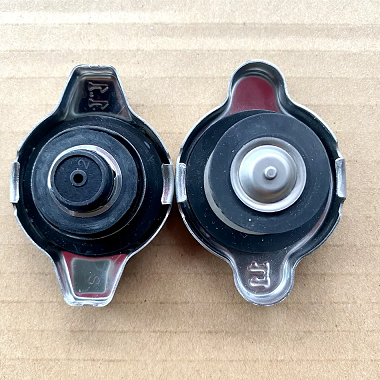News
what does a radiator cap look like
What Does a Radiator Cap Look Like?
The radiator cap, often overlooked, is a small but mighty component in your vehicle's cooling system. Picture this: a metal cap, about the size of a palm, usually found on top of the radiator or coolant reservoir. It's not just any cap; it's a pressure valve that keeps the engine from overheating. But let's not get ahead of ourselves.

The Visual Breakdown of a Radiator Cap
A typical radiator cap is round, made of metal, and has a distinctive locking mechanism. You might notice it has a rubber gasket inside, designed to create a tight seal. This cap isn’t just a cover; it’s a gatekeeper, holding back the pressure that builds up as the engine heats up. The underside of the cap has a spring-loaded valve, which is crucial for maintaining the right pressure level.
My Encounter with the Radiator Cap
Once, I had an old clunker, a hand-me-down from my father. It was a beast of a car, temperamental as a wild stallion. One sweltering summer day, the engine started to overheat. I popped the hood, and there it was, the radiator cap, staring back at me. A slight turn, and I could hear the hiss of pressure releasing. That was the day I realized the importance of this unassuming piece of metal.
Why the Radiator Cap Matters
The radiator cap isn't just about keeping coolant in; it’s about managing the delicate balance of pressure and temperature. If the pressure gets too high, the cap releases some of it to prevent damage to the radiator and hoses. Conversely, if the pressure is too low, the engine can overheat, leading to costly repairs.
Key Features of a Radiator Cap
- Pressure Valve: Ensures optimal pressure within the cooling system.
- Rubber Gasket: Provides a tight seal to prevent leaks.
- Locking Mechanism: Keeps the cap securely in place, preventing accidental release.
Final Thoughts
Next time you pop the hood, take a moment to appreciate the radiator cap. It's a small component with a big job, quietly keeping your engine running smoothly. Understanding what a radiator cap looks like and its function can save you from unexpected breakdowns and expensive repairs. So, keep an eye on it and ensure it’s in good condition. Your car will thank you.
CATEGORIES
CONTACT US
Contact: Chary
Phone: 15058438932
Tel: +86-574-88980578
Email: cap@radiator-cap.com
Add: NO.552, NANDA ROAD, FENGHUA (315500), NINGBO, P.R.CHINA